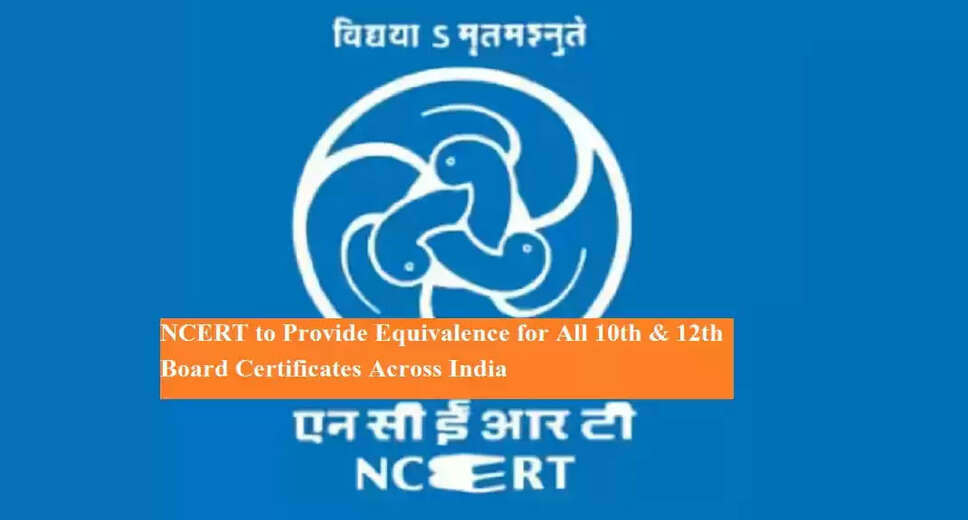NCERT to Standardize 10th and 12th Grade Certificate Equivalence Across India

NCERT's New Initiative for Educational Equivalence
The National Council of Educational Research and Training (NCERT) has announced a significant policy change that will provide equivalence for 10th and 12th-grade certificates issued by various educational boards throughout India. This decision, officially communicated by the Ministry of Education via the e-Gazette, aims to streamline the admission and employment processes for students across the country.
Key Benefits of the New Policy
Direct Advantages for Students:
This initiative will facilitate students in gaining admission to higher education institutions and securing government job placements by ensuring uniform recognition of their board certificates.
Streamlined Migration Process:
Students will find it easier to transfer between different educational boards across the nation. Certificates recognized by NCERT will hold universal validity, promoting transparency and consistency among boards.
Authority in Charge:
The NCERT has been tasked with overseeing the equivalence process through the National Assessment Center – PARAKH, which was established under the National Education Policy (NEP) 2020. PARAKH is committed to ensuring that the equivalence process is transparent and academically sound, upholding high educational standards.
Included Boards:
Education boards created by the Central or State Government
Boards established through Parliament or State Legislature Acts
Boards formed by Executive Orders
Statutory bodies and recognized institutions authorized to issue certificates
Transition from Previous System:
This new directive supersedes the earlier framework established on 15 November 2021, which assigned equivalence responsibilities to the Association of Indian Universities (AIU).
Implications for Students
Admissions to Higher Education:
Students will now benefit from uniform recognition of their certificates when applying to colleges and universities.
Job Opportunities:
Government positions that require board-level qualifications will now accept NCERT-approved equivalence across the nation.
Inter-Board Transfers:
The new policy simplifies migration between boards, ensuring academic continuity for students relocating across states or boards.
